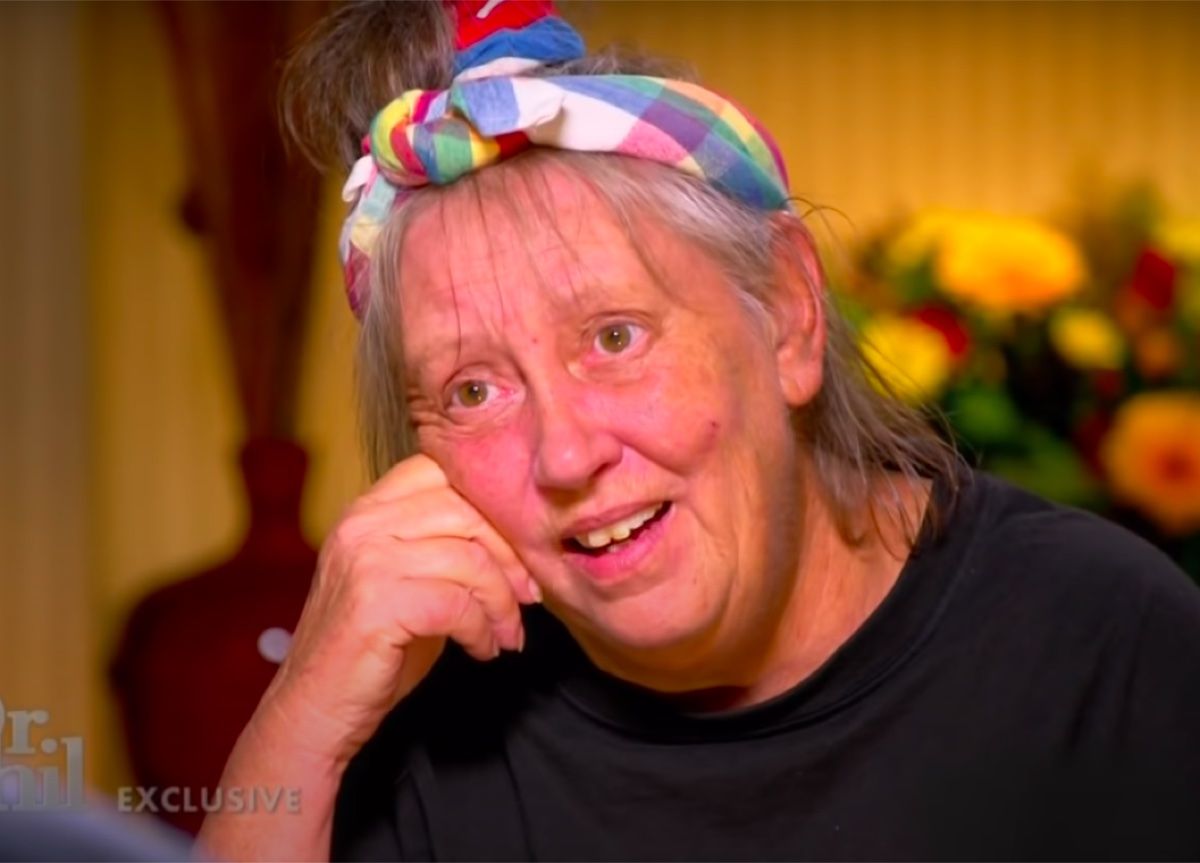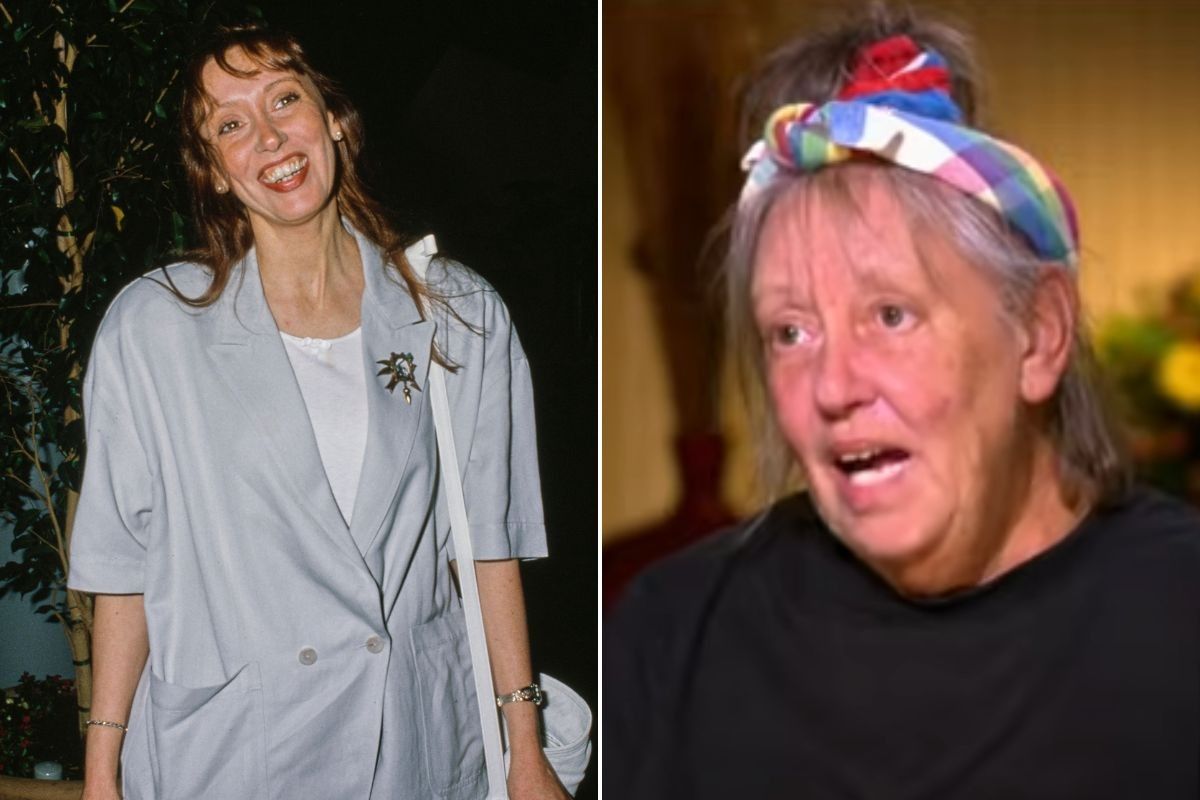Did a television interview, intended to offer help, instead exploit a vulnerable individual for ratings and sensationalism? The controversy surrounding Dr. Phil McGraw's 2016 interview with Shelley Duvall, a celebrated actress struggling with mental health, reignited discussions about the ethics of media and the responsibility of those wielding the microphone.
Shelley Duvall, a name synonymous with unique and memorable performances in films like "The Shining" and "Popeye," captivated audiences with her distinctive screen presence. However, her life took a turn, and she retreated from the spotlight. In 2016, Dr. Phil invited her onto his show, a decision that would later draw significant criticism. The interview aimed to address Duvall's mental health struggles, but many felt it crossed the line into exploitation, and that the focus on sensationalism eclipsed any genuine attempt at providing support.
| Category | Details |
|---|---|
| Full Name | Shelley Alexis Duvall |
| Born | July 7, 1949, Fort Worth, Texas, USA |
| Died | July 11, 2023 (aged 75) |
| Known For | Actress and Producer |
| Notable Roles | Wendy Torrance in "The Shining," Olive Oyl in "Popeye" |
| Career Highlights | Won a Cannes Film Festival Award for Best Actress in 1977; produced and hosted the children's anthology series "Faerie Tale Theatre" |
| Personal Life | Known for her eccentric and distinctive style, Duvall largely withdrew from public life after the early 2000s. |
| Later Life | The interview with Dr. Phil in 2016 brought her struggles with mental health to the forefront, sparking debate about media ethics. |
| Reference | Wikipedia |
The 2016 interview became a focal point of debate, with critics arguing that Dr. Phil's approach was insensitive and exploitative. The episode, titled A Hollywood Stars Descent into Mental Illness: Saving the Shinings Shelley Duvall, was branded appallingly cruel and shameful. The concern was that the show prioritized entertainment over the well-being of the guest. Some observers noted that the format of the interview treating Duvalls condition as a case study further objectified her vulnerability. In the context of the public's perception of her, it was argued that this was particularly damaging, given the very personal nature of the challenges she was facing.
- Ullu Web Series 2024 The Hottest Show Everyonersquos Talking About
- Bollyflix New Movie Your Ultimate Guide To Bollywoods Latest Releases
Years before her passing, on July 11 at the age of 75, Duvall expressed her regret regarding the interview. The experience, as she later recounted, left her feeling exposed and misunderstood. In a 2021 interview with the Hollywood Reporter, she reflected on the circumstances of her appearance on the show, suggesting a level of manipulation and a lack of genuine support.
One of the key points of contention surrounding the interview was the lack of informed consent. Reports indicated that Duvall was not fully aware of the potential consequences of her participation, particularly the way her mental health struggles would be presented to a mass audience. It was suggested that she had submitted to doing the interview without her partner's knowledge. This lack of transparency raised ethical questions about the responsibility of media professionals to protect vulnerable individuals.
Duvall's career trajectory was marked by distinctive roles and collaborations with visionary directors. In a 1985 interview with CNN, she shared her first encounter with Robert Altman, and how that experience launched her into her career in show business. In a world where she stood apart, she became a fixture in the world of cinema. Her performance in "The Shining" has become iconic, with her portrayal of Wendy Torrance recognized for its vulnerability and raw emotion. Duvall herself has spoken of how difficult the role was, and the toll it took on her. She also added that playing Wendy Torrance in the movie "The Shining" was the most difficult role she ever played, and it left her in tears every day while making the movie.
- Xhamstar The Rising Star In The Digital World
- Penelope Menchaca Onlyfans The Ultimate Guide To Her Rise Content And Success
Her work wasn't limited to drama. Her portrayal of Olive Oyl in Altmans musical adaptation of "Popeye" showcased her versatility. Her willingness to embrace eccentric characters, a trait that made her stand out, also solidified her place in cinema history. Duvall wasn't just an actress; she was a producer. Notably, she produced and hosted the children's anthology series "Faerie Tale Theatre," which offered unique and imaginative adaptations of classic stories.
The response to the interview was swift and overwhelmingly critical. Critics and viewers alike expressed concerns about the ethics of showcasing an individual's mental health struggles in such a public and potentially exploitative manner. The decision to film the interview and air it on television sparked immediate condemnation, with many arguing that it was a blatant example of sensationalism and a disregard for the individual's privacy and well-being.
In a new interview, much of the conversation revolved around the circumstances surrounding the interview, with Duvall voicing her feelings about the experience. She spoke of feeling vulnerable and exposed, and the feeling that her struggles were being used for entertainment. The actress provided some details, and this helped to offer a better understanding. In addition to her reflections on the Dr. Phil interview, she also talked about the intense experience of filming "The Shining."
Dr. Phil, for his part, defended the interview a year before Duvall's death, citing his intentions to provide help. However, his defense did little to quell the controversy. The fundamental question remains: was the focus on offering support, or was the ultimate goal to generate ratings by sensationalizing the personal struggles of a well-known individual? The ongoing conversation underscores the delicate balance media professionals must maintain when dealing with sensitive topics and vulnerable individuals.
The media's portrayal of mental health remains a complex issue. The way in which someone deals with their mental health struggles, and how they are received in public, often can be a reflection of society itself. There is a risk that the quest for sensationalism can overrule ethics, leaving lasting effects on the individual. This underscores the need for media professionals to be mindful of the potential impact their work can have on the people they feature. The case of Shelley Duvall is a stark reminder of the power of media and the responsibility that comes with that power.
The legacy of Shelley Duvall is one of a talented and versatile actress. Her distinct style, the iconic characters she played, and the impact she made in the film industry will continue to be remembered and celebrated. Even after her death, the controversy surrounding her interview serves as a reminder of the importance of treating individuals with respect, compassion, and discretion, particularly when dealing with mental health.
The discussions about the interview also provided the public with an opportunity to have a deeper look at their own biases. The public was able to assess how it views mental health issues, and whether it shows compassion, understanding, and the willingness to provide aid to those that are suffering.
The lasting impact of this event extends beyond the immediate aftermath of the interview. It has become a catalyst for the change needed in how the media approaches mental health, urging for a more sensitive, responsible, and ethical approach.
Duvall herself expressed her deep regret about the way the interview was handled. Her perspective, especially when viewed in the context of her passing, gives even more weight to the need for increased media responsibility. The narrative surrounding the interview, coupled with the tragic loss, has given more gravity to the larger conversation regarding mental health awareness and the ethics of media.
Remembering the screen icon, Shelley Duvall, and the many memorable roles she performed during her career, continues to be a popular conversation in the industry. However, her experience with Dr. Phil, has left a lasting mark on the public consciousness. It has become a reminder to have a great degree of compassion and to consider the potential impact of the things that are broadcasted to mass audiences.
- Ullu Web Series Name Exploring The Hottest Series Trending On Ullu
- Prmoviesinfo Your Ultimate Destination For Streaming Movies Online


